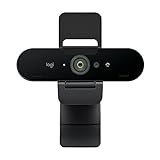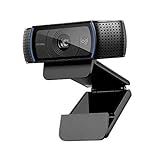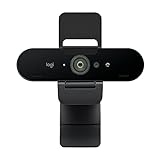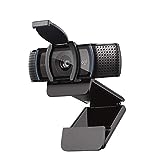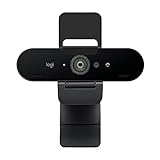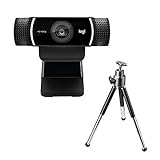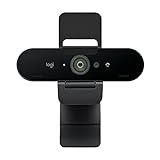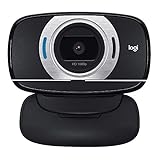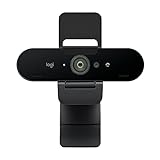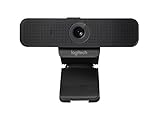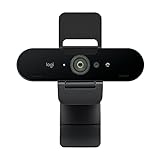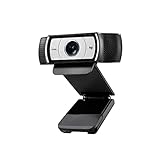Logitech Brio vs Razer Kiyo - Where are the differences?
- 65°
- 78°
- 90°
- 81.6°
Where are the differences?
Let's compare the two webcams Logitech Brio* and Razer Kiyo* a little closer and take a look at the differences. Of course the release year is interesting. This is identical for the selected models. Both are from the year 2017.
Which webcam has the higher resolution?
The resolution is one of the most important factors for a webcam and therefore elementary for the purchase decision. The two webcams Logitech Brio and Razer Kiyo do not differ at this point. Both provide a maximum resolution of 4096 x 2160 px (4K). The resolution and frame rate factors are often also a reason why an external webcam is worthwhile. With most built-in webcams in notebooks, the resolution and frame rate is quite low.
Which webcam gives the better frame rate?
This brings us to the next important factor: the frame rate, or fps (frames per second). This specification describes how many frames per second can be recorded and played back. The higher the value, the smoother the picture runs.
The maximum framerate of the two webcams is 60 fps.
However, the frame rate often varies depending on the resolution. Some devices have a higher framerate at a lower resolution. This is also the case here. At the top of the table you can find the resolutions with the corresponding framerate.
If a resolution of 1080p is chosen, the framerate of the two webcams will differ. In comparison, the Logitech Brio* offers more here. It has a frame rate of 60 fps. The Razer Kiyo has a frame rate of 30 fps.
There is a difference in 720p resolution. The Logitech Brio* offers 90 fps at this resolution. Thus, the webcam performs better in comparison than the Razer Kiyo with a frame rate of 60 fps.
Field of view
The larger the field of view, the more of the environment a webcam can capture. However, a larger field of view is not necessarily better, as it can also capture more privacy. This is where the two webcams differed. The maximum field of view of the Logitech Brio is larger with 90 ° in comparison. The Razer Kiyo has a maximum field of view of 81 °. The Logitech Brio* has the advantage that the viewing area can be adjusted. This of course gives more flexibility in the application.
Is there a microphone installed?
With most webcams, there is an integrated microphone. For streaming or when no headset is available, this is beneficial. Both the Logitech Brio and the Razer Kiyo offer an integrated microphone. In both cases, it is an recording.
Cover panel
Some webcams have a cover bezel built in. This is only the case with the Logitech Brio*. With the Razer Kiyo you have to do without this feature. The bezel protects the lens, but also provides privacy protection. Most of the time, the cover bezel is advertised for privacy. Of course, for some models, there are also additional options to cover the lens.
Is there a tripod?
Only with the Logitech Brio* you have the possibility to attach a tripod. With the Razer Kiyo you cannot do this by default. A tripod is interesting if the webcam cannot be attached directly to the screen or notebook. A tripod is also interesting for live streams.
